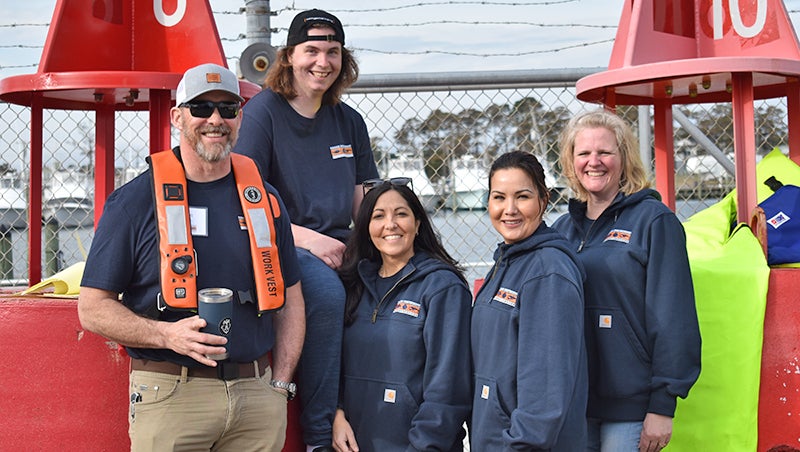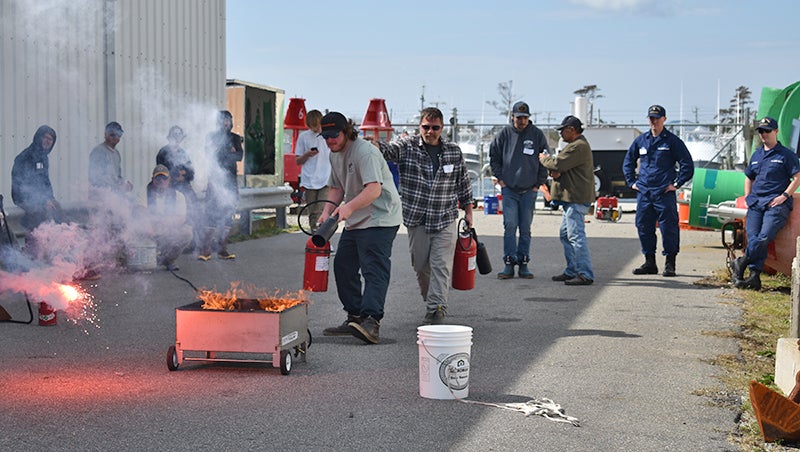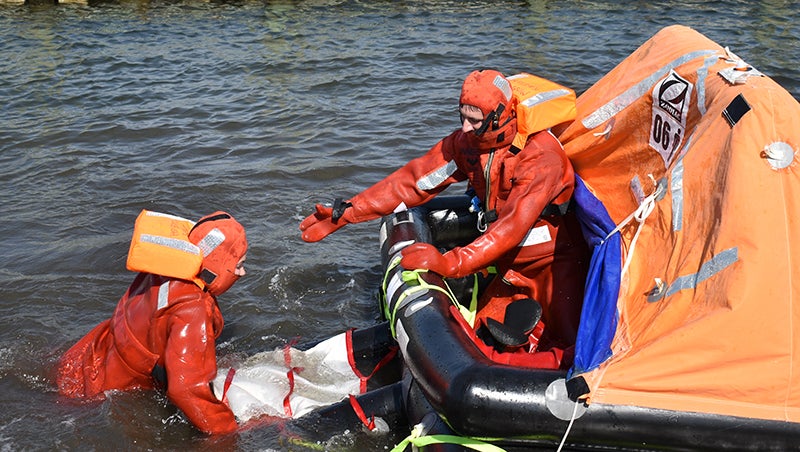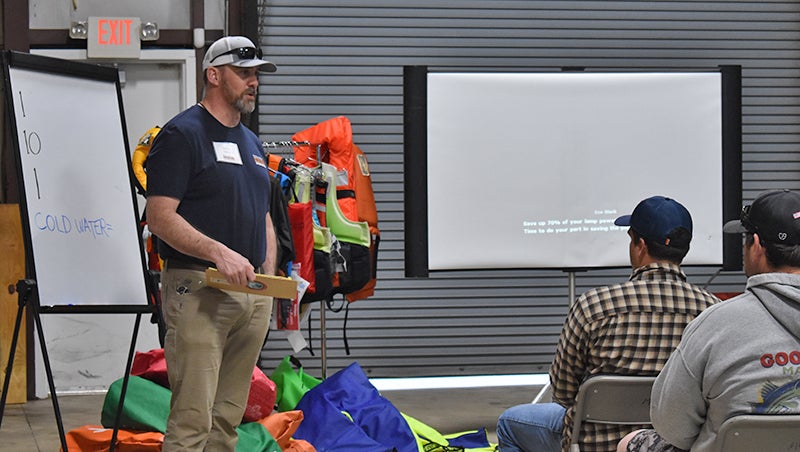FPSS safety training gives local fishermen tools for survival
Published 1:02 pm Monday, April 17, 2023
|
Getting your Trinity Audio player ready...
|
A group of about 20 local fishermen gathered at the U.S. Coast Guard facility in Wanchese recently to take part in a two-day safety training provided by Fishing Partnership Support Services (FPSS), a non-profit dedicated to the health, safety and economic security of commercial fishermen and their families.
FPSS has worked to strengthen the commercial fishing industry by supporting fishermen since 1997. Team navigators assist fishing families in applying for health coverage, enroll in offered wellness programs, learn how to stay safe at sea through free safety programs and assist with financial planning and retirement. “We try to meet fisherman where they’re at, not take them away from their work at sea,” said John Roberts, FPSS director of safety training.
The March 23-24 event was the first time FPSS offered their free safety courses in North Carolina; team navigators Jenny Verde and Maria Carpenter spent weeks prior reaching out to local fishermen in an effort to bring awareness to the program and extend the invitation to all who were interested in attending. “We’re trying to get the word out,” Verde shared. “I think the opportunity of having a free course, because I know certain courses like this are expensive, gives fishermen the opportunity to take a course that doesn’t financially put a strain on them.”
As the group took their seats early Thursday morning, Roberts introduced the FPSS team and noted that all of the instructors that were present were either retired Coast Guard, commercial fishermen or marine surveyors. Having spent 31 years in the Coast Guard himself as a multi-mission man, Roberts has had his fair share of safety and survival training, noting how crucial safety knowledge and skills are to anyone who goes out to sea.
The fishermen were tasked with completing several safety protocols and drills on day one, such as practicing mayday calls, putting out fires, controlling flooding and damage, using PFDs, life rafts and utilizing immersion suits. The men were split into two groups; the instructors would demonstrate each drill before having the participants replicate it.
“When we teach them drills, which is practicing emergencies at sea, we teach progressive skills,” Roberts explained. Each skill builds off of the other: putting out a fire could lead to having to abandon ship, which means a life raft and immersion suit should be employed. “Having a skill set and practicing that skill set in each one of these disciplines is what is going to save you,” Roberts added.
One group started at the immersion suit station. Once they learned how the suit was to be stored and then worn, the fishermen suited up and one by one jumped into the water in an effort to get comfortable wearing the immersion suit. “Survival times go up by 46 times if the suit it worn, keeps you warm and helps you stay afloat,” Roberts shared. Once each participant was comfortable in the water, they practiced safety formations and worked on entering and exiting a life raft. In the event of having to abandon ship, those stranded may have to wait hours on end for the coast guard and rescue team to arrive; staying safe in a life raft, along with wearing a life jacket or suit, could be the difference between life and death for a fisherman.
Captain Matthew Baer, operational commander with the Coast Guard for the North Carolina sector, had addressed the group earlier in the day regarding safety: “Search and rescue is a big deal for us and certainly the best way for us to do it is to prevent it from having to happen.” Baer pointed out the hazardous seas that come with the local territory, harping on the importance of learning and practicing skills that can save a life (or many). “You are certainly no strangers to all the shoaling we have going on around Outer Banks, operating in shallow waters and dangerous conditions.”
The FPSS team members are no strangers to dangers at sea. Verde shared that she comes from a fishing family. But it was when she lost her husband to a fishing incident where he never came back from sea that drew her to become involved in the organization. “I feel really passionate about the trainings.”
Carpenter’s family was also involved in fishing and with the partnership. She explained that the team “wears a lot of hats,” and offers assistance with dangers both on and off the water. “I am a recovery coach; I help people with substance use disorder as well.” Part of the survival and safety training is a segment on narcotics.
Jesse Ruby, peer support specialist with the Department of Health & Human Services in Dare County, was invited to speak on the matter during the training. As a former commercial fisherman, Ruby shared that he understands the struggle these men face, having to spend so much time out at sea and the constant wear and tear on their bodies from such extensive physical labor and mental and emotional warfare. “We help people with substance used disorder, mental health, things of that nature,” Ruby said prior to his presentation. “How that coincides with fishing, it’s a big part of our community, and has the face of ‘we work hard, we play hard’…we want them to know that we are here for them.”
Once their skills are refined on day one, the fishermen were then given information on cold-water survival, helicopter rescues, stability, liability and emergency procedures on day two. From there, the knowledge gained in day one was applied to a simulated fishing vessel, where safety drills were performed and emergency responses were practiced as a team. If the participants were present for both days of training, they earned the title of AMSEA Certified Drill Conductors, meeting the U.S. Coast Guard requirements.
Free trainings and courses are offered in the spring and fall along the east coast, and more information on the partnership can be found at fishingpartnership.org.
SUBSCRIBE TO THE COASTLAND TIMES TODAY!










